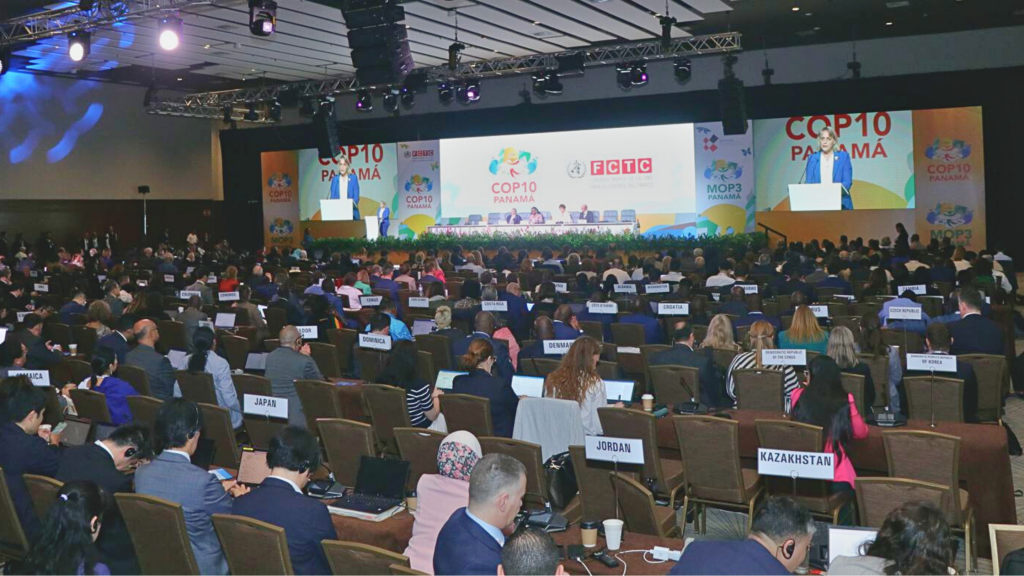
In my 36 years of fighting the smoking epidemic, one of the most important lessons I’ve learned is that there is no single action that supports all adults who smoke trying to quit. One size does not fit all.
I am heartened that tobacco use remains a key priority for global health leaders, as evidenced by the tenth meeting of the Conference of Parties (COP10) last week. Leaders from the 168 countries that have signed the World Health Organization’s Framework Convention on Tobacco Control (WHO FCTC) spent five days discussing the best practices to lower smoking rates from a top-down policy approach.
But I am concerned that leaders also discussed measures designed to interfere with the beneficial use of reduced-risk nicotine products, such as e-cigarettes, lozenges, and pouches. These stances threaten to slow, not accelerate, smoking cessation rates, which ultimately will result in more lives lost to lethal combustible tobacco use.
The future success of the WHO FCTC hinges on more nuanced, evidence-based actions. Tobacco control policies must make traditional smoking cessation tools, including medications and nicotine replacement therapies, widely available. But they must also include carefully regulated, reduced-risk products for adults who cannot or otherwise will not quit. These two strategies can and should work harmoniously to achieve the best possible public health outcome.
The global Doctors’ Survey conducted by Sermo and a survey conducted by a team at Rutgers University and the University of Pennsylvania found that a shocking majority of health care providers incorrectly believe that nicotine causes the deadly illnesses resulting from tobacco use. This is not true – yet it remained a pervasive belief at COP10. This misconception risks leaving millions of smokers without viable alternatives to conventional cigarettes, and it is also contrary to the leading science.
Some of the key policies laced with misconceptions discussed at COP10 continue to threaten public health. There was an attempt to categorize aerosols emitted from novel and emerging tobacco products as “smoke,” which is highly misleading and would only increase the existing confusion of millions of people in need of accurate information. The framework also once again failed to acknowledge the role that some reduced-risk products can play in lowering smoking rates. I am concerned many adults who smoke in countries that ignore the role of reduced-risk systems will not have adequate access to tools that would help them quit.
Not all countries have adopted WHO’s proposals. The UK government, for example, has based its rational public health and medical approach to ending the smoking epidemic on recognition that people can substantially reduce their risk of Illness and early death by switching from smoking to vaping. Its National Health Service has gone so far as to introduce a “swap to stop” initiative for current smokers. Japan and Sweden have also adopted positions on tobacco control that increase adult access to reduced-risk products and have dramatically lowered their smoking rates as a result. Such science-based case studies as those presented by the UK, Japan and Sweden should not be ignored or dismissed.
There is no doubt in my mind that my tobacco control colleagues at COP10 are diligently committed to fighting the smoking epidemic – just as I am. We share the common goal of eliminating what remains the leading cause of preventable death globally.
I would urge these world leaders, however, to embrace more nuanced actions that are built on the most recent, robust scientific data – including reputable sources like the latest Cochrane Review, which found with high certainty that e-cigarettes are more effective than traditional nicotine replacement therapies at helping people who smoke quit.
Taking a more prohibitive approach to nicotine products across the board will leave many adults who smoke behind, with devastating consequences. Rather than focusing solely on restricting supply and demand, as exemplified by the MPOWER policies, the WHO FCTC should explore evidence-based strategies that can support all people who smoke in their journeys to quit. Some adults will successfully quit using traditional measures, which I always strongly encourage them to try, but many more will not. And these individuals deserve tools that will reduce their exposure to harmful chemicals.
The commitment to end the smoking epidemic is a massive, noble undertaking, to which my colleagues and I have dedicated our entire professional lives. We must take a humanistic and science-based approach to improve global health and take full advantage of all the available tools at our disposal, including those that provide adults with less risky methods of consuming nicotine.
© 2023 Foundation for a Smoke-Free World. All rights reserved.